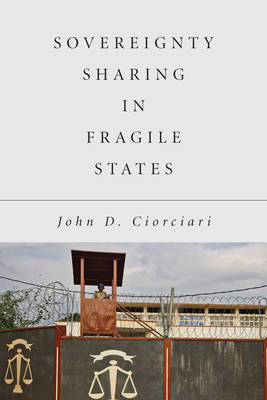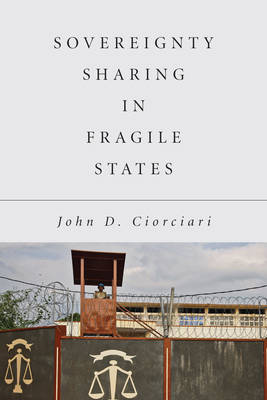
- Afhalen na 1 uur in een winkel met voorraad
- Gratis thuislevering in België
- Ruim aanbod met 7 miljoen producten
- Afhalen na 1 uur in een winkel met voorraad
- Gratis thuislevering in België
- Ruim aanbod met 7 miljoen producten
Omschrijving
In fragile states, domestic and international actors sometimes take the momentous step of sharing sovereign authority to provide basic public services and build the rule of law. While sovereignty sharing can help address gaps in governance, it is inherently difficult, risking redundancy, confusion over roles, and feuds between partners when their interests diverge.
In Sovereignty Sharing in Fragile States, John D. Ciorciari sheds light on how and why these extraordinary joint ventures are created, designed, and implemented. Based on extensive field research in several countries and more than 150 interviews with senior figures from governments, the UN, donor states, and civil society, Ciorciari discusses when sovereignty sharing may be justified and when it is most likely to achieve its aims. The two, he argues, are closely related: perceived legitimacy and continued political and popular support are keys to success.
This book examines a diverse range of sovereignty-sharing arrangements, including hybrid criminal tribunals, joint policing arrangements, and anti-corruption initiatives, in Sierra Leone, Cambodia, Lebanon, Timor-Leste, Guatemala, and Liberia. Ciorciari provides the first comparative assessment of these remarkable attempts to repair ruptures in the rule of law--the heart of a well-governed state.
Specificaties
Betrokkenen
- Auteur(s):
- Uitgeverij:
Inhoud
- Aantal bladzijden:
- 328
- Taal:
- Engels
Eigenschappen
- Productcode (EAN):
- 9781503613669
- Verschijningsdatum:
- 16/03/2021
- Uitvoering:
- Hardcover
- Formaat:
- Genaaid
- Afmetingen:
- 150 mm x 231 mm
- Gewicht:
- 589 g

Alleen bij Standaard Boekhandel
Beoordelingen
We publiceren alleen reviews die voldoen aan de voorwaarden voor reviews. Bekijk onze voorwaarden voor reviews.











